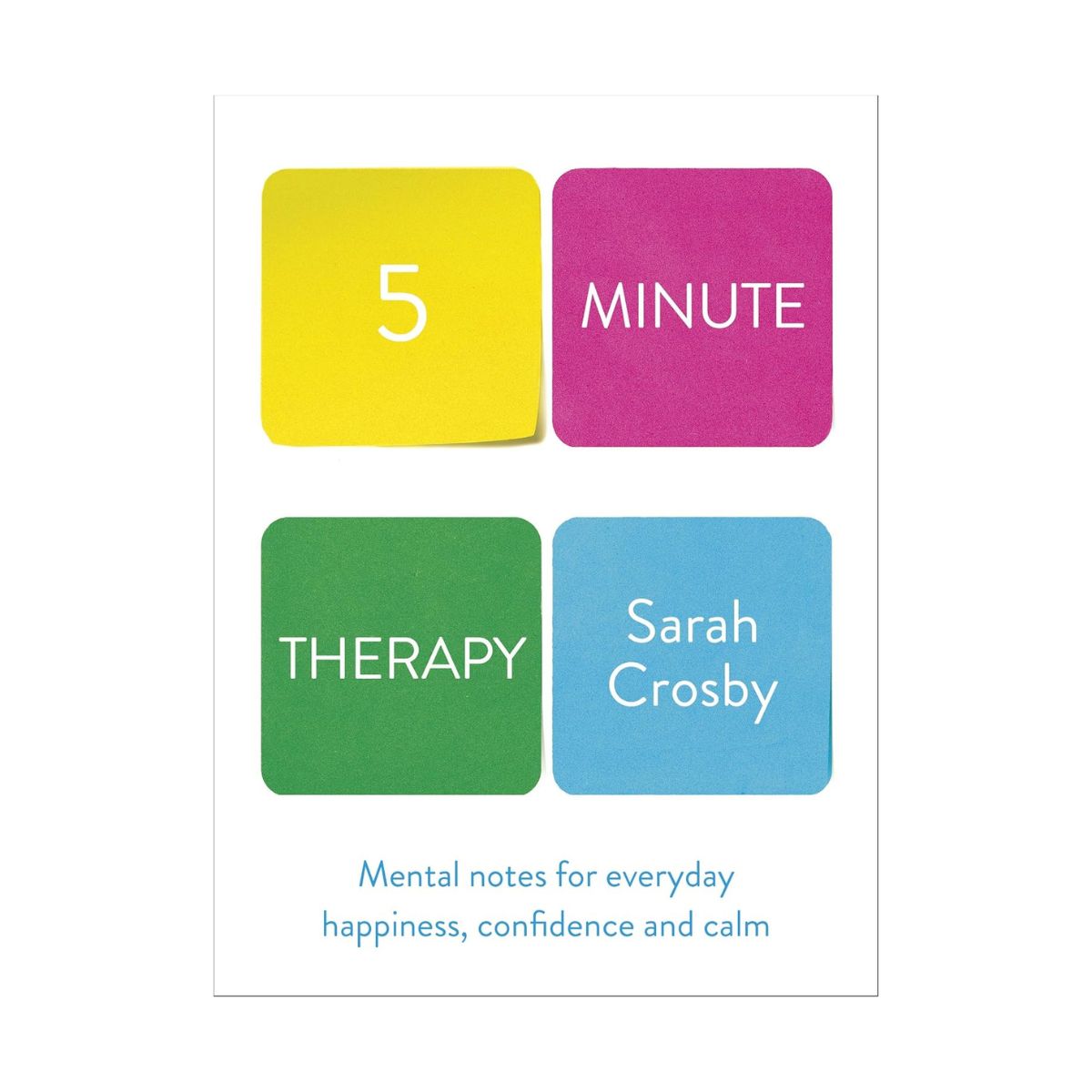Sudden Urge to Refresh Your Routine, Now the Seasons Have Changed? Enter: Your Ultimate Winter Reset Checklist
Pocket-sized tips to adjust to the new season.


Celebrity news, beauty, fashion advice, and fascinating features, delivered straight to your inbox!
You are now subscribed
Your newsletter sign-up was successful
Feeling overcome by a sudden urge to reset and refresh your routine at the moment? Yep, us too. There's something about the shift from autumn to winter that makes us crave change - in winter's case, cosiness, comfort, and hibernation. But if you're keen to use the months ahead to instil mood-boosting microhabits, enter: therapist Sarah Crosby's winter reset checklist.
Crosby - who's better known as The Mind Geek - is one of the most talked-about therapists on the Internet right now. With over 300,000 followers, she has a knack for making mental health feel relatable and approachable by breaking down complex topics (usually reserved for the therapy room) into Instagram conversations we can digest on the move.
As we head into winter, her advice couldn’t be more timely. While only around 2 million people in the UK are clinically diagnosed with Seasonal Affective Disorder (SAD), research suggests that up to one in five of us experience a dip in mood as the days get shorter. And according to studies, women are particularly affected, with a noticeable decline in mood and motivation during the colder months.
“In winter, nature is resetting all around us,” says Crosby. “The leaves fall, animals hibernate, and the light dims. The world is slowing down, so it’s natural for us to do the same.”
While the idea of a “reset” can often feel like a big, overwhelming task (especially with the pressure of social media “wellness” trends), Crosby’s version is refreshingly simple, practical, and backed by science. “A reset doesn’t need to be a big, dramatic overhaul,” she says. “It’s about small shifts you can make even on an ordinary Tuesday.”
Intrigued? Keep reading for Crosby’s ultimate winter reset checklist. For more seasonal wellbeing tips, don’t miss our guides to the Danish-approved Hygge liftstyle, trending winter arc challenge, or failsafe tips for exercising in winter. We've also got round-ups of the best cold weather workouts, best supplements for winter, and best sunrise alarm clocks. Already feeling exhausted? Don't skip this explainer on how to avoid the winter slump.
10 Simple Ways to Reset Your Body and Mind This Winter, According to a Top Therapist
1. Get outside in the first hour of the day
“Morning light acts as a reset button for your body clock,” says Crosby. “Even on overcast days, the outdoor light is up to a hundred times brighter than what you’ll get indoors, which provides a cue to your brain that it’s time to wake up.”
Celebrity news, beauty, fashion advice, and fascinating features, delivered straight to your inbox!
She points to a pilot study published in Medicina, which shows that people who get early daylight exposure report sharper focus and better mood throughout the day.
“It’s free, fast, and possibly the most underrated wellbeing tool we have.”
2. Take a walking snack
“You don’t need a full workout to feel a lift in mood,” says Crosby. “Short, brisk walks during the day lower stress hormones and boost cognitive performance.”
She suggests building in ten-minute walks after lunch or between meetings, reminding us that “the point is regular, rather than intense, movement.” Exercise snacking FTW.
3. Read for ten minutes a day
“Reading provides a full body reset,” explains Crosby. “Think of it like a mental palate cleanser - it slows the heart rate, relaxes your muscles, and engages empathy.”
It’s particularly powerful to read before bed, she says, sharing research which links nighttime reading with improved sleep. But that doesn’t discount reading throughout the day, with further research from the University of Sussex finding that just six minutes of reading lowers stress by up to 68%.
Crosby’s favourite books of 2025? A Family Matter by Claire Lynch and Ordinary Saints by Niamh Ní Mhaoileoin. “Both are beautifully observed novels that remind you what it feels like to be absorbed by a story again,” she says.
4. Take a hot spot approach to decluttering
“Forget full-house clear-outs,” argues Crosby. Instead, she suggests dedicating 15 minutes to clearing out one small area, such as your desk, bathroom cabinet or utility room.
“Visual clutter increases cortisol levels and reduces focus,” explains Crosby, “which is why just one clear surface can shift your entire mood.”
5. Stick to your sleep and wake times
This one can be a tough one, especially on weekends when it’s tempting to lie in after a week of early mornings. But according to Crosby, there are real benefits to staying consistent with your bedtime routines and morning alarms.
“Recent research highlights sleep regularity as more important than sleep duration for mood and metabolic health,” she explains, reassuring us that our bodies will adapt to the routine faster than we think.
@beckymaelee ♬ Underneath the Tree (Christmas Songs - One day, everything changed. You're all I need) - Kelly Clarkson
6. Take a short break from social media
I know why Crosby recommends this one. A couple of years ago, I took a three-month break from social media, and it did wonders for my mental health. But with a growing number of jobs requiring us to be connected to what’s going on online, a complete hiatus isn’t always possible.
“Even just a week away from social media can significantly reduce anxiety and improve wellbeing,” says Crosby, pointing to a study published by the University of Bath in 2022. “But even if a total break isn’t realistic, limiting your use to specific windows during the day and deleting the apps from your home screen for the rest of the time can make a big difference.”
7. Try habit stacking
If you’re trying to build a new habit this winter, then Crosby recommends tying it in with something you already do.
“We stick best to new behaviours when they’re attached to our existing routines,” she explains. “For example, you could try committing to stretching for 30 seconds after brushing your teeth. It’s a simple, repeatable daily habit which works because the cue to do it already exists.”
8. Consider the architecture of your choices
“In behavioural science, choice architecture is the art of setting things up so the healthy choice is the easy one,” says Crosby. “Move your water glass onto your desk, put your walking shoes by the door, or keep your book beside the kettle. These all make it easier to improve your daily health behaviours.”
9. Eat a protein rich breakfast
We’ve all been told as kids that breakfast is the most important meal of the day. But with today’s competing dialogues around nutrition, we can sometimes find ourselves straying from the basics.
“A steady breakfast rich in protein, such as eggs, yoghurt, or beans, reduces energy dips and keeps appetite more stable throughout the day,” says Crosby. “It’s a low-effort way to reset your morning without risking a caffeine overload.”
Still not sure where to start? Don't miss our guides to the foods with more protein than eggs, here, plus the surefire signs you're not eating enough protein.
10. Write a tomorrow list before bed
Straightforward journaling is one of the most popular reset ‘hacks’ in the book, but Crosby has her own spin.
Instead of writing about your day, she suggests jotting down a brief to-do list for the next day. “It’s a small but satisfying way to offload mental clutter before sleep,” she says, sharing research from Baylor University, which found that this approach helped people fall asleep faster than writing about their completed tasks from the past day. Best wellness journals, at the ready.
Shop MC UK reset favourites now:

Last but by no means least - adding earplugs to your commutes and any loud or overwhelming scenarios can boost both ear health and mental wellbeing. Scroll through our extensive edit of the best Loop earplugs, here.

A former heptathlete, Ashleigh is a freelance journalist, specialising in women’s health, travel and culture, with words in Condé Nast Traveller, Marie Claire, Women’s Health, Stylist, Dazed and Glamour. She’s also the Co-Founder of Sunnie Runners, an inclusive London based run club.

